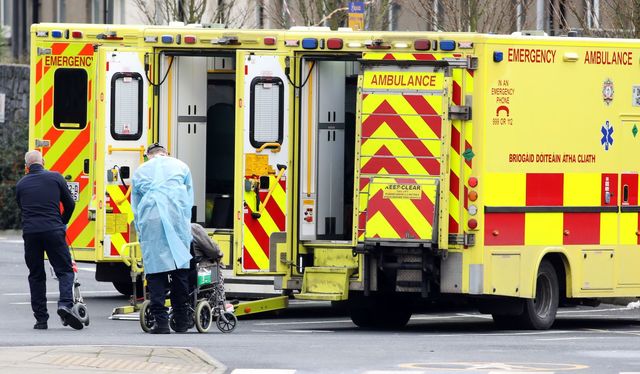At least 32 Irish children have been treated for paediatric inflammatory multisystem syndrome (PIMS) - a dangerous COVID-related illness - since the outbreak of the pandemic.
PIMS is an inflammatory illness that can appear in children weeks after they test positive for the coronavirus causing them to present with persistent fever, rashes, conjunctivitis, crampy abdominal pain, and diarrhoea.
Children's Health Ireland (CHI) said that PIMS can vary in different children and said that some children require very little support to fight the condition. The CHI said that other children became severely ill and suffer from inflammation of the heart muscle and the coronary arteries that supply blood to the heart.
These patients may require intensive care and strong medications to battle the illness and the CHI has warned parents to be on the lookout for symptoms of PIMS.
"PIMS is a life-threatening disorder caused by an unusual response to an infection by your body's immune system. It is similar to Kawasaki disease or toxic shock syndrome and is very rare," the CHI told the Irish Independent.
Bobby Lee, an 11-year-old child from Dublin, ended up in Temple Street Hospital last week after complaining of severe SIMS-related symptoms. Bobby Lee complained of headaches and a temperature last weekend and quickly developed diarrhoea and fatigue so severe that he couldn't get out of bed.
Within days, he ended up in Temple Street Hospital "fighting for his life".
Danielle Ryan, Bobby Lee's mother, told the Irish Times that staff at Temple Street Hosptial had ICU equipment on standby as his blood pressure and heart rate weren't responding to treatment.
Thankfully, his condition stabilized without the help of ICU, but his mother said that he remains on oxygen and his mobility is non-existent.
Ryan and her partner both tested positive for the coronavirus over the Christmas period, but she said that her son wasn't sick until he began displaying symptoms of PIMS last week.
The HSE's website says that a "very small number of children" who tested positive for the coronavirus have been hospitalized with PIMS.
However, the CHI said that it was too early to definitively say if PIMS was caused by COVID-19 and additionally said that all 32 children had recovered from the illness.
"We don't know if these children developed PIMS because they have Covid-19. It is too early to tell if there is a link," the CHI told the Irish Independent.




Comments